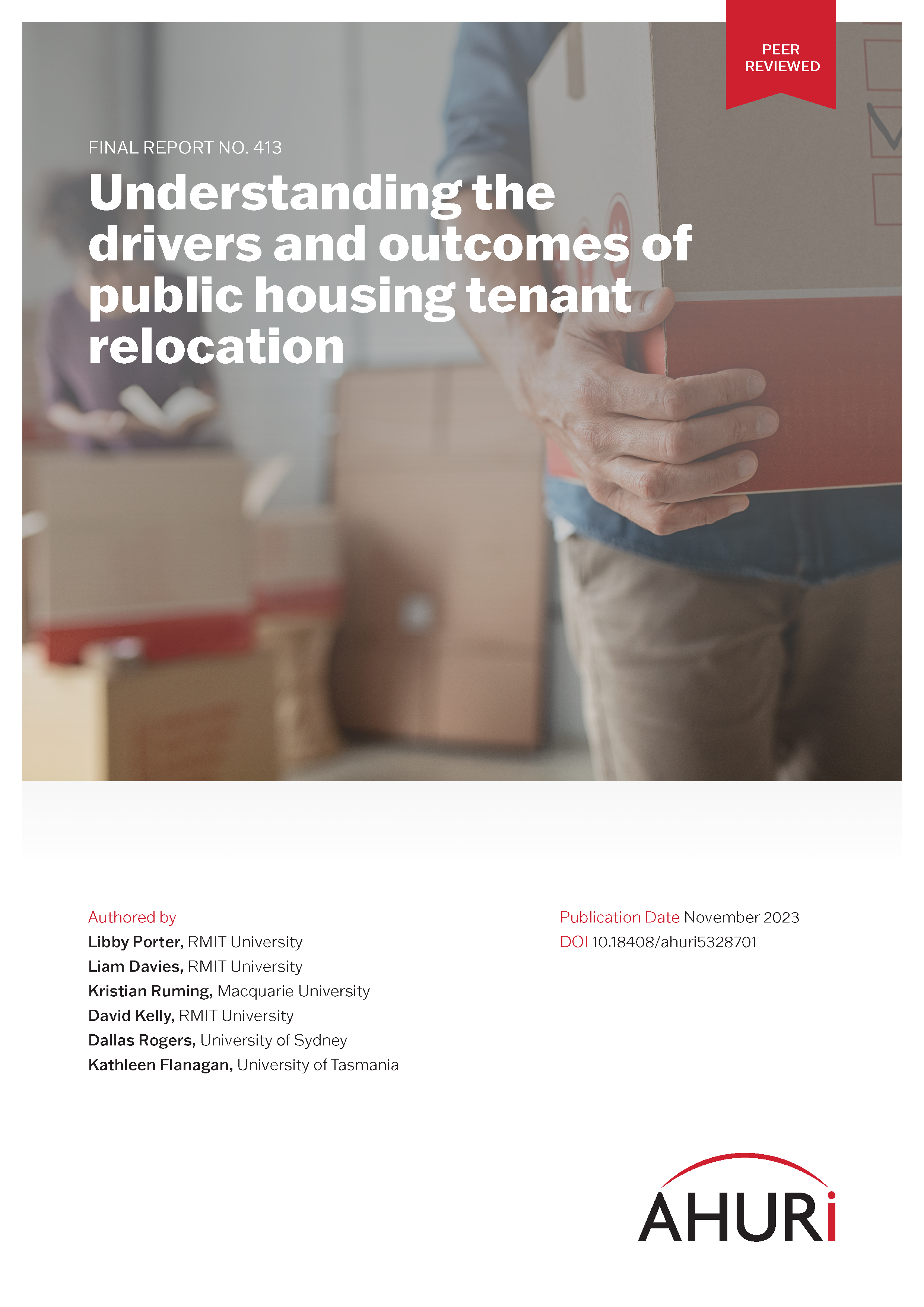
Communication is key to tenant wellbeing in public housing relocations
30 Nov 2023
For public housing tenants, having to relocate from their home is a significant and sustained stress. Even if the final housing outcome may be improved, the relocation can be a negative emotional experience which deeply affects tenants’ wellbeing, according to new AHURI research.
The research, ‘Understanding the drivers and outcomes of public housing tenant relocation’, undertaken for AHURI by researchers from RMIT University, Macquarie University, University of Sydney and University of Tasmania, examines the drivers and experiences of tenant relocation from public housing in New South Wales, Victoria and Tasmania.
The number of relocations is accelerating due to increasing pressures on the public housing system. High maintenance costs, stock redundancy and poor quality public housing are often cited as the reasons for demolishing public housing and relocating tenants.
‘As part of our research we investigated two causes of tenant relocation: Department initiated relocation is where government housing departments relocate tenants because housing is to be renewed, while tenant initiated relocation is where a tenant requests to transfer to another public housing dwelling, often because they feel their housing is unfit or unsafe. Our research found that both reasons can cause severe stress for tenants,’ says lead researcher Professor Libby Porter of RMIT University. ‘In particular, when relocation is initated by the housing departments tenants can experience a strong sense of displacement, with negative impacts of uncertainty and confusion, impacts on mental and physical health, dislocation from community, loneliness and loss of stability.’
Even when the final housing outcome may be improved, relocation can be a negative experience with tenants experiencing it as an intense emotional stress that affects their wellbeing before, during and after moving. Relocation can destroy the networks that exist between vulnerable residents and the wider community, advancing the concept of ‘domicide’, which refers to the ‘killing of a sense of home and place’ and leads to people experiencing intense ‘placelessness’ and grief at the loss of home.
A central factor affecting tenant experiences is the lack of available housing options that meet tenants’ needs when they ask or are required to relocate. The lack of public housing can result in departments relying on head leasing in private rentals. For tenants, head leasing signals further disruption and less security, further compounding the negative effects of displacement.
For tenants living in public housing estates that are to be renewed, learning about their future relocation is a particularly stressful moment as their housing stability is suddenly changed around them. This stress can be made worse when there is an intense deadline or time pressure on the urgency to relocate.
The researchers offered advice for how relocations can be better handled to reduce the stress created for tenants. ‘Clear, honest, early and ongoing information is critical to a successful renewal and relocation process. Our research shows that the media has an important role in getting the renewal right,’ says Professor Porter. ‘Announcements made by ministers, government departments or development partners before residents have been informed causes considerable anxiety for tenants and reduces their trust in the process. This makes the job of those who work to relocate tenants much more difficult. A commitment should be made that for all redevelopment and relocation processes, the tenants themselves are the first to be notified.’
To make sure tenants and the community know exactly what is happening, media outlets require up-to-date and accurate data from governments about renewal programs, relocations processes, the numbers of tenants affected, the numbers of public housing units being demolished and where the capital generated from renewal will be invested.

